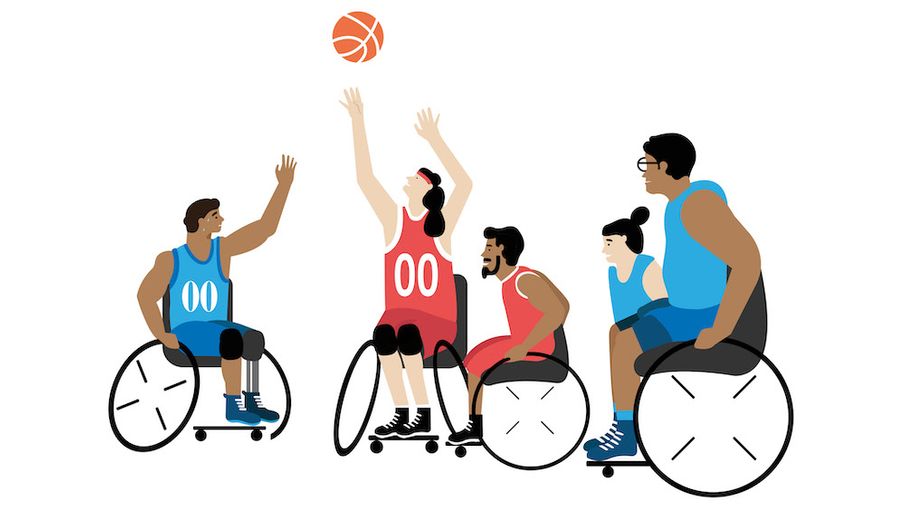The way we treat disabled people within society needs to be transformed – and there are simple changes we all can make to help that important process...
A government survey into the public perceptions of disabled people found that most of those questioned perceived people with disabilities as less capable than the non-disabled. Research by Activity Alliance also found that less than half of people say that they know somebody with a disability, despite one in five of us being disabled in some way.
It’s vital that we challenge the public perception of disability, not only to benefit people with disabilities by allowing them to live more fulfilled lives, but to also benefit all of us by creating a more open and fair society. And the good news is there are many, simple ways we can start to challenge and improve the public perception of disability today.
1. Get to know people with disabilities as individuals
People are different. People with disabilities are different. People have unique likes, dislikes, opinions, and ambitions, and people with disabilities are no exception. Although it’s great to educate yourself on various conditions, it’s even better to get to know people with disabilities as individuals. Assumptions that make us less likely to interact with people can prevent us from finding out their stories – stories that can interest us, educate us, and inspire us. Getting to know people with disabilities as individuals can help us to rid ourselves of these assumptions.
2. Be inclusive of people with disabilities in sports and activities
Including people with disabilities in sports and activities can help to challenge the public perception that people with disabilities are less capable. There is evidence to suggest that the majority of people with disabilities want to take part in sports and activities with mixed abilities. Most people without disabilities also recognise that inclusive sports and activities would help them to feel more comfortable around people with disabilities. Let people know that your local netball team or craft group is for everyone. Make the effort to ensure the first experience of a sport or activity is a positive one, by making disabled people feel welcome, so that they are more likely to return. More inclusivity in sports and activities can help to eradicate the segmented society of ‘us’ and ‘them’.

3. Help to create an inclusive working environment
It’s the government’s aim to get a million more disabled people into work. To fully achieve and maintain this we need to be more inclusive of people with disabilities. You can help to create this by interacting and connecting with your colleagues. Listen to them, empathise with them, and treat them with respect and understanding. Creating a more inclusive working environment can help to keep people with disabilities in employment, and seeing people with disabilities working in our schools, supermarkets, and hospitals will help to challenge the public perception of disability.
4. Broaden the variety of media that you consume
It’s so important for us all to see representations of ourselves in the media, as seeing ourselves in films and books helps us to identify with others. We see that our bodies are capable of our dreams and ambitions, as other people have done it, too! There is a need for greater representation of people with disabilities in the media, but there are some great reads, watches, and listens already out there that help to challenge the public perception of disability:
Book: ‘Go Your Crohn Way’ by Kathleen Nicholls
Kathleen writes about the highs and lows of life with the long-term health condition – Crohn’s disease – with both compassion and hilarity. Read it for the puns!
Film: The Secret Garden
A classic children’s book published in 1911, The Secret Garden has been recreated on screen many times. The story follows Colin, who uses a wheelchair and is unable to leave the house due to a psychological disability, but finds respite in the magical Secret Garden. The latest remake, starring Colin Firth and Julie Walters, is due for release in 2020, so there’s time to get excited.
Podcast: ‘BBC Ouch’
Hosted by journalists with disabilities, ‘BBC Ouch’ is a podcast that covers topics from accessibility to politics to the arts – it’s both relevant and entertaining.
5. Observe before assuming people with disabilities need assistance
Assuming people with disabilities need help with the simplest of tasks is a form of discrimination, called ableism. People often assume that those with disabilities must have carers and can’t work or drive, but this isn’t always the case. Wanting to help someone you think might be struggling is a natural instinct, but instead you could first ask: “Would you like any help with that?” And don’t be offended if the person says no. Respecting the independence of people with disabilities can help to challenge public perception.
6. Don’t judge by appearance
Not every disability is visible. You never know what somebody else is going through. Be kind, always!


Comments